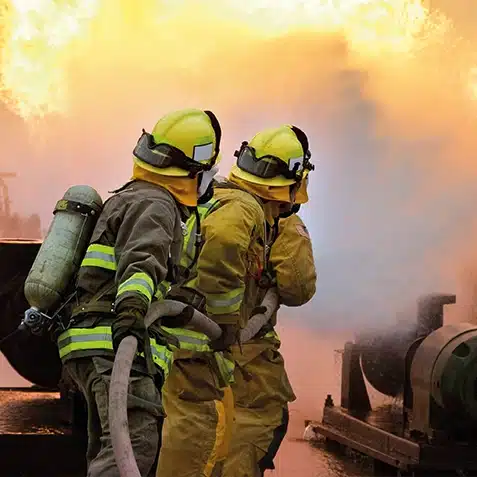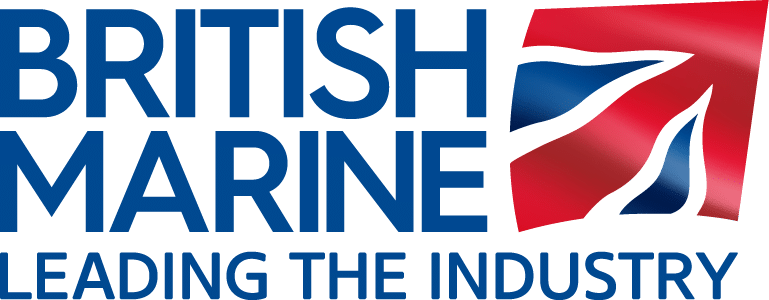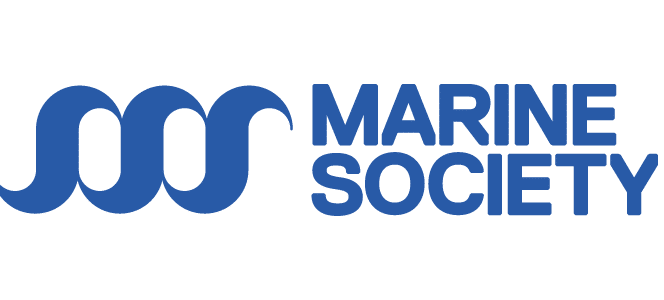Maritime Fire Risk Management Course
Diploma in Shoreside Maritime Fire Risk Management
Shoreside Maritime Fire Risk Management
Maritime Training Academy’s specialised online Fire Risk Management Diploma provides expertise in assessing, managing and reporting fire risks across ports, terminals, vessels and maritime facilities.
Study online from anywhere in the world and gain the skills required to identify fire hazards, carry out formal risk assessments and develop fire safety plans in line with international maritime standards such as SOLAS and ISPS.
This globally recognised Fire Risk Qualification is designed for marine safety professionals, port operators, compliance officers and shoreside emergency teams who wish to specialise in maritime fire safety and risk management.

Professional Maritime Fire Risk Qualification
Learn the skills required to assess fire risks, plan for emergencies and meet international safety standards across ports, vessels and maritime facilities.
Contact us below to enrol today, or speak with our experienced course advisors.

Duration:
12 - 18 months
Learn at your own pace
Online Course:
Study from anywhere

Cost:
Diploma: £3,195
Certificate: £2,295

Recognised by: 
Shoreside Maritime Fire Risk Management Diploma vs Certification
Choose the right path for your career:
Comprehensive Training: Covering fire risk assessments, safety planning, SOLAS / ISPS compliance, and incident reporting.
Flexible Study Duration: 12 – 18 month depending when you enrol to the program, study online at your own pace, from anywhere in the world.
Marine Industry Career Opportunities: 100% Online, with access to our student learning portal
Long-Term Career Impact: Marine Fire Risk Assessor, Port Facility Safety Officer, Shoreside Emergency Planner & Maritime Compliance Advisor
Global Recognition: Our Diplomas are recognised by the University of Portsmouth and are supported by industry associations.
Assignments: One assignment is required to be completed and submitted at the end of each module, based on that particular subject.
Certification: you will receive a PDF Digital certificate (Printed Certificate Completion Pack available).
Final Examination: There will be a final examination upon completing and submitting all student assignments (exams are sat in April or October).
Post-Nominal letters: On passing the Diploma you can also use these letters after your name: MTA Dip MFire
Digital Course Badge: Upon successful completion students will receive an exclusive course badge for use on business cards, LinkedIn profiles and website(s)!
Diploma - £3,195
A globally recognised qualification for careers in Maritime Fire Risk management across the marine industry.
✔
✔
✔
✔
✔
✔
✔
✔
✔
✔
Certificate - £2,295
Specialist Fire Risk Training without formal assessments, for those who do not require a recognised diploma.
✔
✔
✔
✔
✔
✔
Shoreside Maritime Fire Risk Management Curriculum: 10 Modules
Learn how to assess fire risks in ports, terminals, onboard vessels and maritime facilities. Understand how different environments and operations influence risk and how to carry out structured assessments that meet international safety standards.
Training includes methods for identifying hazards, developing fire safety plans and complying with SOLAS and ISPS regulations. You’ll also gain the skills to document risks, communicate clearly with emergency teams and support fire safety compliance across marine operations.
1. Introduction to Maritime Firefighting
- Introduction to fire
- History of firefighting at sea
- Notable incidents
- Legislation
- Ship fire risk analysis
- International State Port Control Inspections
2. Chemistry of Combustion
- Theory of combustion
- Ignition temperature
- Classification of fires
- Products of combustion
- Transmission of heat
- Methods of extinguishing fire
- Extinguishing media
- Backdraught & flashover
3. Prevention and Suppression of Fire & Explosion (SOLAS)
- International Convention for the Safety of Life at Sea (Solas)
- General
- Prevention of Fire and Explosion
- Suppression of Fire
4. Escape & Operational Requirements (SOLAS)
- Escape
- Operational requirements
- Alternative design and arrangements
- Engineered Solutions
5. Special Requirements (SOLAS)
- Helicopter facilities
- Carriage of dangerous goods
- Protection of vehicle, special category and ro-ro spaces
- Casualty threshold, safe return to port and safe areas
- Design criteria for systems to remain operational after a fire casualty
- Safety Centre on passenger ships
6. International Fire Safety Systems (FSS) Code Part 1
- The International Code for Fire Safety Systems (FSS code)
- Personnel protection
- Fire extinguishers
- Fixed gas fire-extinguishing systems
- Fixed foam fire-extinguishing systems
- Fixed pressure water-spraying and water-mist fire-extinguishing systems
- Automatic sprinkler, fire detection and fire alarm systems
- Fixed fire detection and fire alarm systems
- Maintenance and Inspection of Fire Protection Systems and Appliances
7. International Fire Safety Systems (FSS) Code Part 2
- Fixed Fire Detection And Fire Alarm Systems
- Sample extraction smoke detection systems
- Low-location lighting systems
- Fixed emergency fire pumps
- Arrangement of means of escape
- Fixed deck foam systems
- Inert gas systems
- Fixed Hydrocarbon Gas Detection Systems
8. Fire Risk Assessment
- Controlling the risks in relation to fire
- Identify the hazards
- Identify people at risk
- Evaluate, remove, reduce and protect from risk
- Record, plan, inform, instruct and train
- Review
- Risk assessment process
- Further guidance on fire risk assessment and fire precautions
- Further guidance on escape routes
- Further guidance on recording, planning, informing, instructing and training
9. Firefighting Operations
- Pre-planning
- Command & control
- Information gathering
- Risk assessment
- Strategy & tactics
- Fire party organisation
- Firefighting techniques
- Search procedures
- Stability
- Ventilation
- External assistance
10. Post Fire Procedures
- First aid
- Recovery
- Liaison with external organisations
- Incident Review
- Fire Investigation
- Case studies
- Future challenges
Hear from our Students
Meet the Course Director
Ian Biles
Managing Director at Maritime Services International
Ian has led MSI to become one of the world’s leading surveying companies. Ian’s qualifications include: Master Mariner, RYA Yachtmaster Ocean, Naval Architect (BEng Ship Science) and Business Management (MA Business Management).
In his role as an expert witness Ian has attended several major fire disasters on ships (Hyundai Fortune, Schiborg, Nova Zembla, Yeoman Bontrup, Amsterdam Bridge, Asian Empire) and worked with many specialist fire experts.

Course FAQs
Find out more about the course with our FAQs below.
How do I become a certified maritime fire risk manager?
Start by completing a recognised training programme like our Maritime training Academy Fire Risk management diploma. You’ll learn how to assess fire risks, develop safety plans, and comply with SOLAS and ISPS requirements, preparing you for roles in marine safety and emergency planning.
What qualification will I receive from your Maritime Fire Management course?
You’ll earn a Diploma in Maritime Fire Risk Management from the Maritime Training Academy. This is a globally recognised qualification for professionals working in ports, terminals, vessel operations, and marine compliance.
Is the course suitable for shoreside safety teams and port personnel?
Yes. The course is ideal for anyone working in marine fire safety, port risk management, or shoreside emergency coordination whether you’re new to the field or building on existing experience.
Does this fire risk training cover international regulations like SOLAS?
Absolutely. You’ll be trained in fire risk management practices aligned with international maritime safety frameworks including SOLAS and ISPS.
Can I take this course without a background in marine safety?
Yes. The diploma is open to both newcomers and professionals from related fields such as marine operations, port management, or compliance.
How much does a fire risk manager in the marine industry earn?
Salaries typically range from £35,000 to £60,000 depending on experience and location, with senior roles in port safety or marine compliance earning more.
See our FAQ page for more questions answered about MTA courses.
Supported by:


Why Choose The Maritime Training Academy?

Flexible
Online learning allows you to study in your own time, at your own pace from anywhere in the world. This saves on travel and classroom costs and allows you to fit your studies around your job and progress your career.

Supportive
While the nature of distance learning is independent study, we recognise the importance of support. Students can contact us at any time during their course for assistance and our team of industry experts are always on hand for advice.

Expertise
We have over 50 industry experts writing, developing and advising on our course material. We truly believe that allowing students to tap into their expertise and knowledge is of the utmost importance to fulfil your dream career.
If you would prefer to complete this as a classroom-based course, please contact us.
